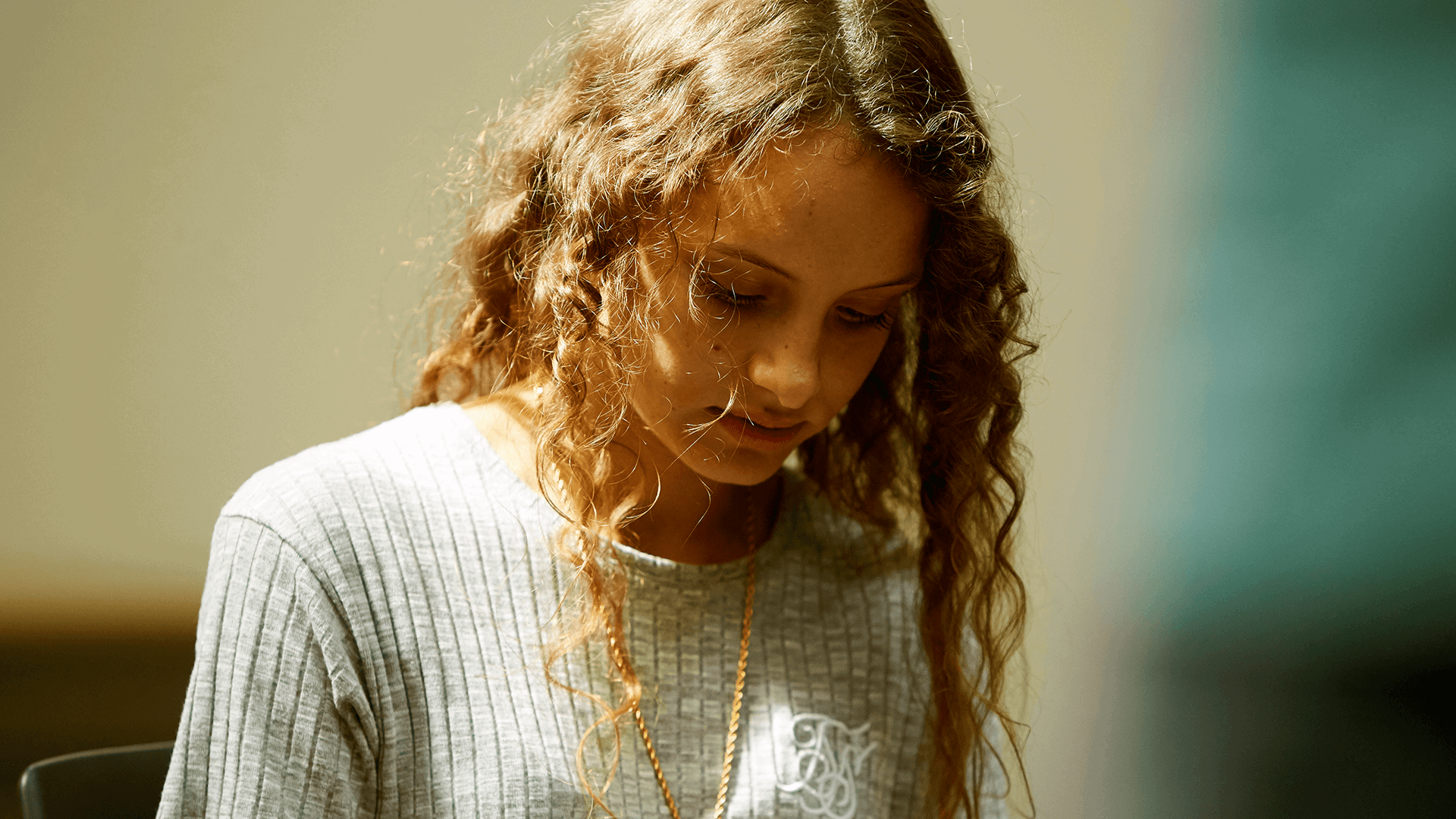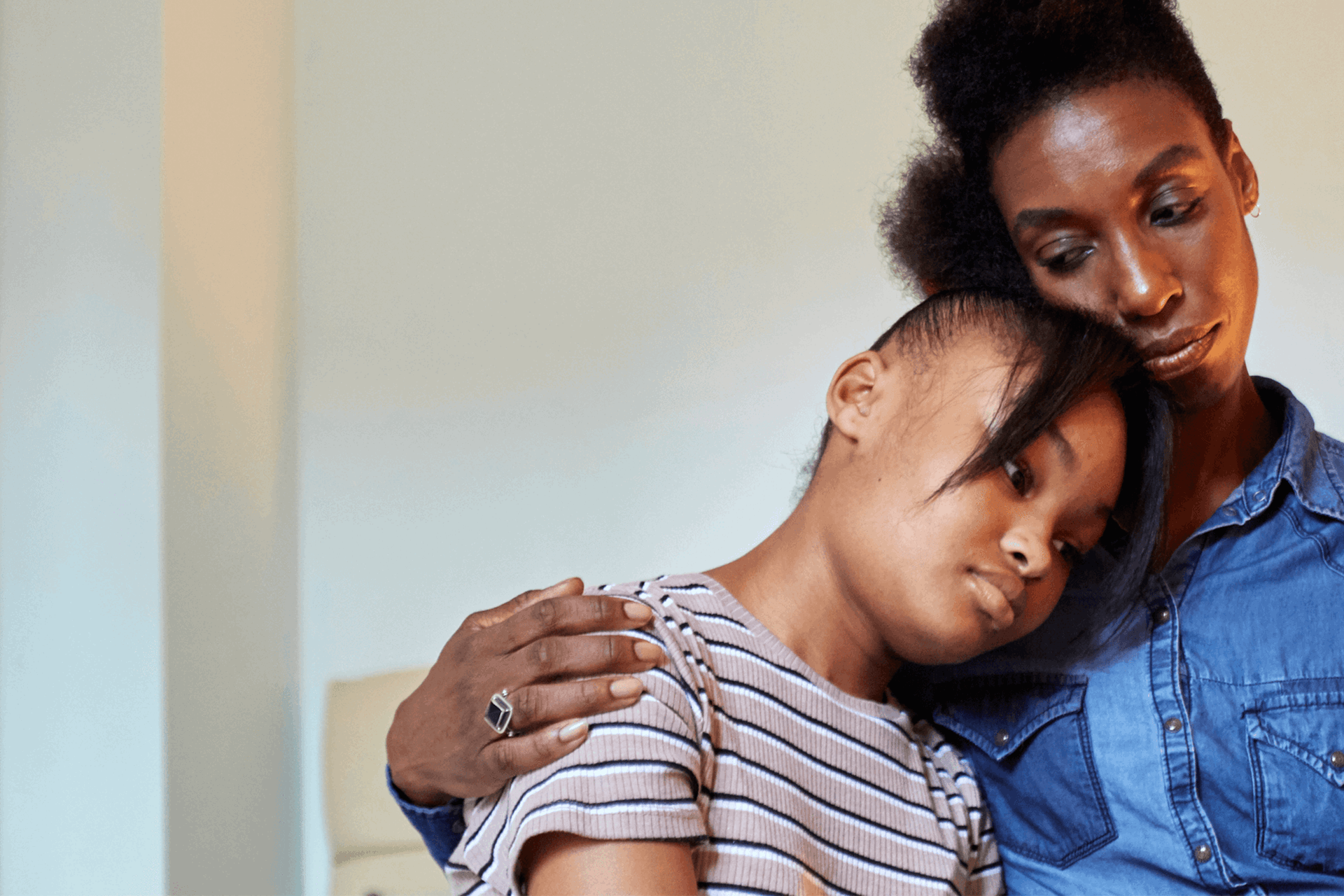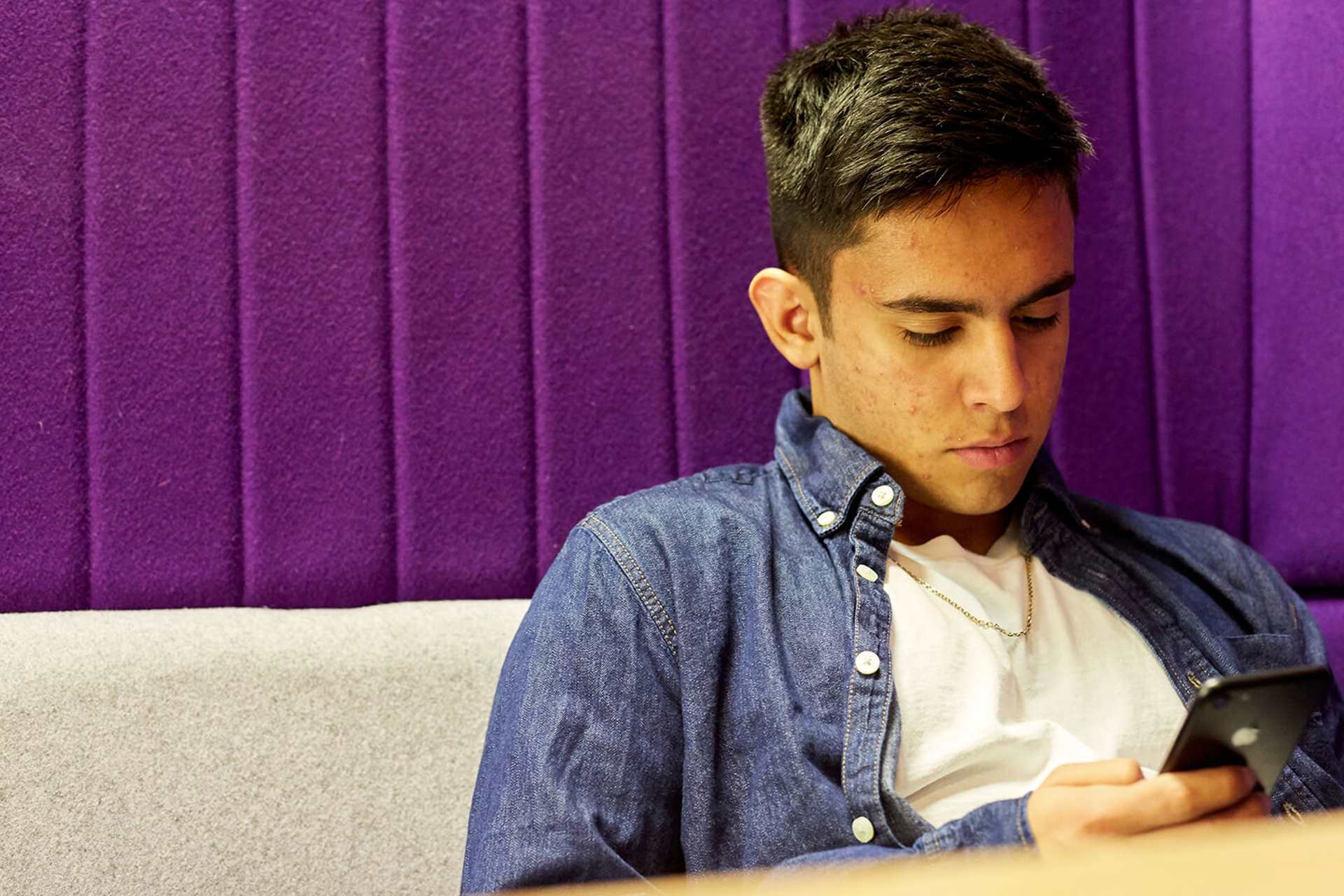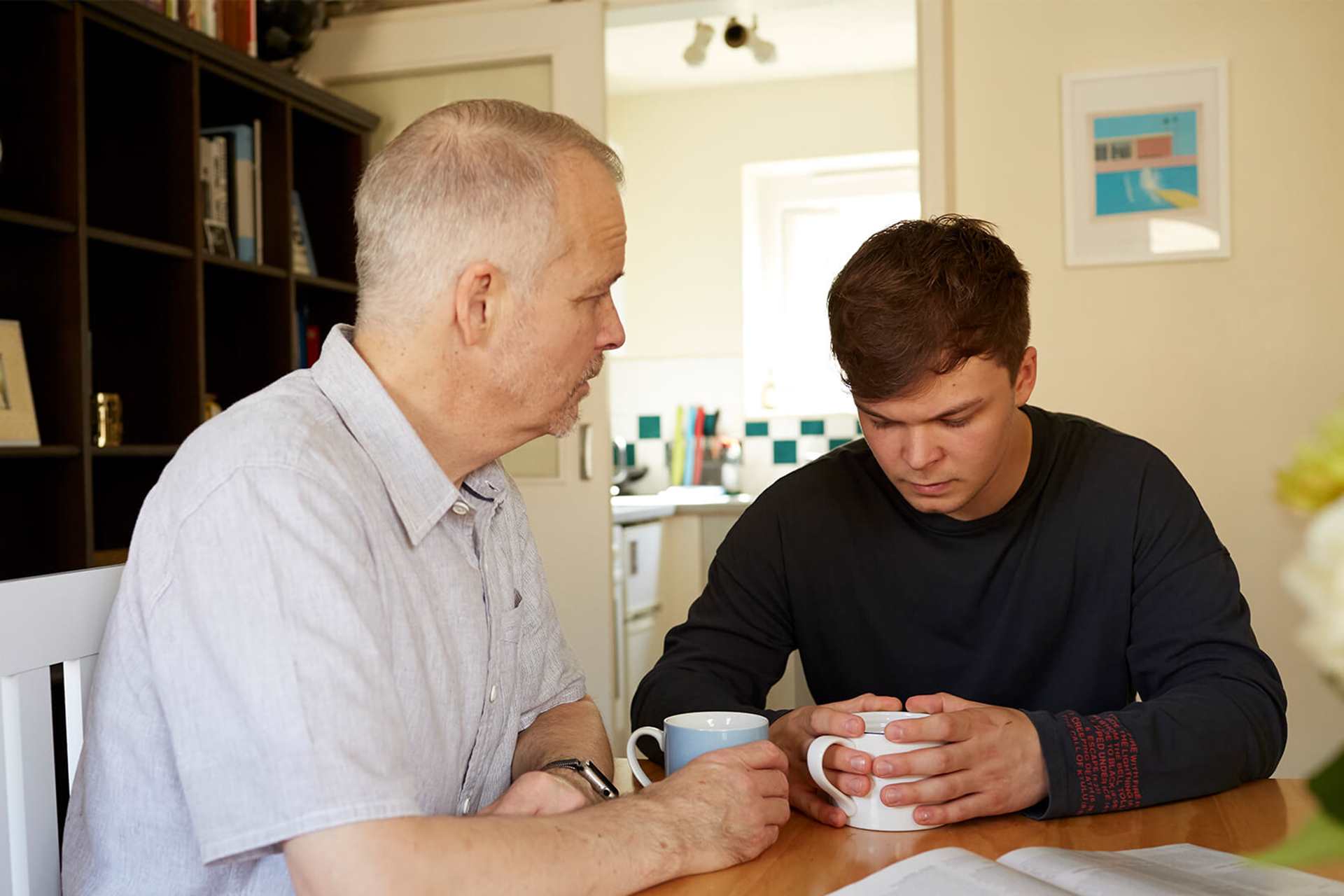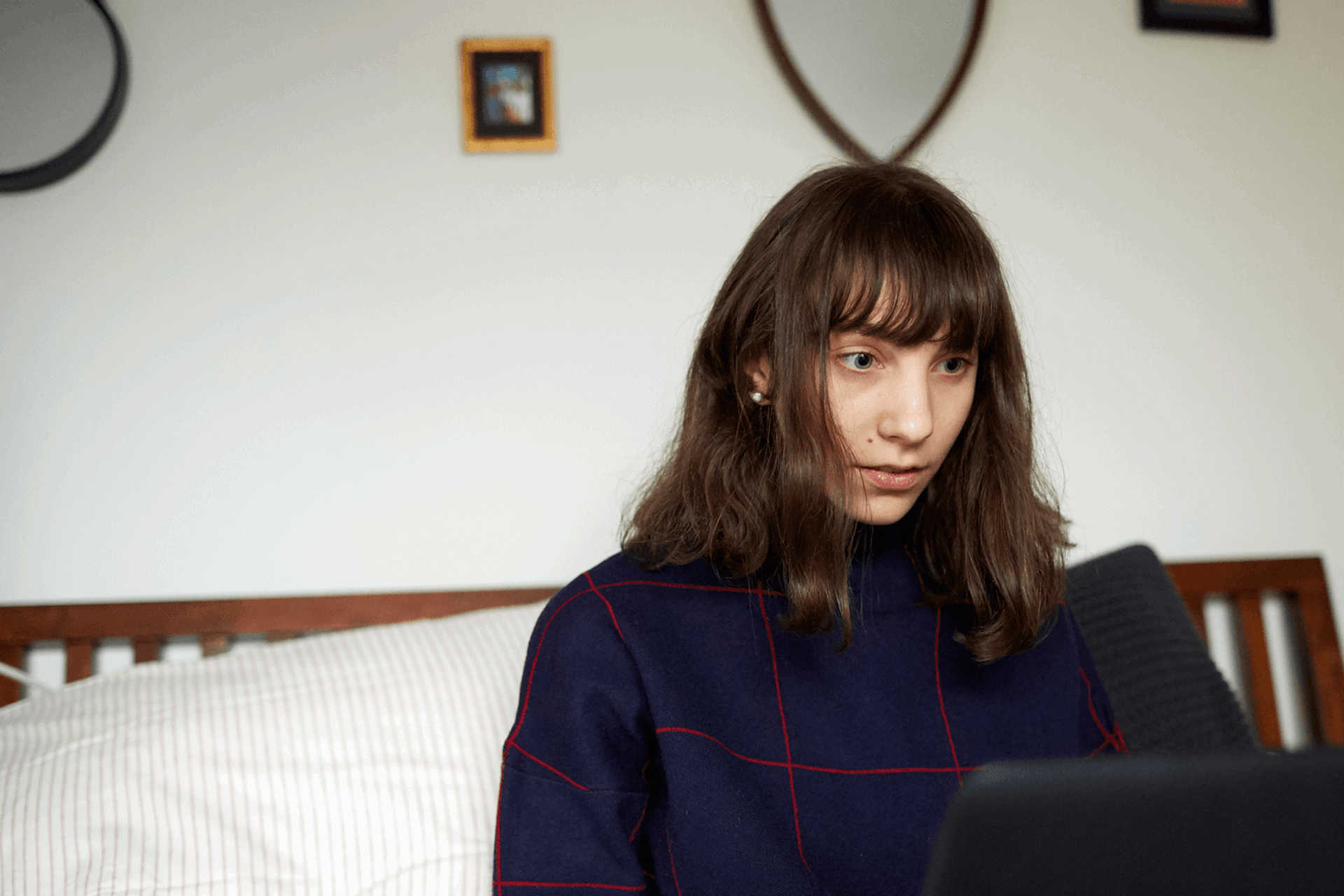Topics mentioned: anxiety, anorexia, chronic health, CAMHS
About: A parent shares the impact a chronic physical illness has had on her daughter’s mental health, reflecting on the things that have made it harder and the things that have helped.
My daughter, now 15, was diagnosed with Crohn’s Disease (a form of Inflammatory Bowel Disease, IBD) aged 10. By then she had been ill for four years and misdiagnosed with stomach migraines, anxiety and anorexia (to name a few).
Not only did all this delay the treatment she desperately needed, but it also meant her truthfulness was questioned. Even I doubted her (and myself) at times. Like many young people who face long waits for diagnosis of chronic physical illness, my daughter was regularly told it was all in her head, or that it was “just” anxiety (and she wasn’t really offered support for that either).
By the time a locum finally referred her to the correct consultant, she was emaciated, unable to eat or walk. Her stomach pain was so bad she was frightened she would die in the night. She could only sleep when I was next to her.
My daughter didn’t have the most common symptoms of Crohn’s Disease (diarrhoea and rectal bleeding), but she had terrible abdominal pain, weight loss, hair loss, extreme fatigue and eye and skin issues.
Experiencing all this, and feeling she wasn’t believed for so long, has had such a dreadful effect on her mental health. She often feels physically very unwell (IBD is a life-long incurable condition); but in many ways the impact of the anxiety and depression it has caused is even worse.
Experiencing all this, and feeling she wasn’t believed for so long, has had such a dreadful effect on her mental health
Over the past seven years, she has missed over half her education. Many days are lost to pain and fatigue; but as many are due to her mental health. She often says she doesn’t feel safe at school. She worries that she won’t be believed if she is taken ill.
IBD (which also includes Ulcerative Colitis) can be an “invisible” condition. Someone with IBD may look fine from the outside. If people have heard of it at all, they often think it’s just about needing the toilet a lot. The reality, with pain, fatigue and flare-ups of symptoms, is so much more complex.
Of course this lack of awareness just adds to the self- consciousness and distress felt by young people already dealing with symptoms that are extremely personal and embarrassing.
It’s no surprise to me that research such as this shows anxiety and depression are common among young people with IBD. As well as bringing pain and fatigue, having a chronic illness can be very isolating, especially if a child is missing school. I feel it gets lonelier and lonelier. My daughter looks to me for so much of her entertainment, and while it’s lovely to be with her, it would be so nice for her to spend more time with other young people.
As well as bringing pain and fatigue, having a chronic illness can be very isolating, especially if a child is missing school.
Mental health support for chronically ill children is so limited (though provision seems to vary by area). My daughter had a hospital support group with other children with long-term illnesses when she was first diagnosed, which helped, but it finished. When we asked for more support, the hospital team said they didn’t feel her mental health difficulties were related to her chronic condition so they couldn’t offer anything. I firmly believe her mental health has everything to do with her illness.
We went back to the GP when my daughter began self-harming during the first Covid lockdown. It was a horrible time – she felt “incredibly sad” all the time – but I was so glad that she told me, so we could push for help.
The GP referred her to Child and Adolescent Mental Health Services (CAMHS) and she now has a phone session with a psychologist every two weeks, in which she can discuss her fear of dying, difficulties with trust and sleep problems. All of these issues stem from experiencing dreadful physical symptoms and not being believed. The sessions are helping her address her anxieties and low mood.
She now has a phone session with a psychologist ... The sessions are helping her address her anxieties and low mood.
My daughter’s school have also made accommodations, such as dropping the PE lessons that left her exhausted for days. Now in her GCSE year, she has been allowed to drop two subjects because the pressure over exams is overwhelming for her. After the last set of mocks, she was stuck in her room for two weeks, burnt out with fatigue and anxiety.
I have met many other parents through the IBD charity CICRA, and our story is too common: long waits for tests, misdiagnosis and doubt, with anxiety seen as a cause of symptoms rather than a result. Meanwhile our children are struggling both mentally and physically.
We need better awareness and diagnosis for chronic conditions, and improved provision of mental health support around them. There should be a focus on wellbeing and mental health support early on – catching children before they fall, rather than waiting until they are really struggling.
We need better awareness and diagnosis for chronic conditions, and improved provision of mental health support around them.
Happily, things seem more positive for my daughter now. Her school is accommodating her as best they can for her exams and I hear that colleges and universities can often cater for a wider range of conditions. I feel hopeful that she could experience an environment that is inclusive and encouraging.
She is doing work experience in a middle school and loving it. I know that being an ill child has made her especially compassionate. She dreams of being a children’s nurse or teacher. I just want her to have the same chance of fulfilling those dreams as everyone else.
I feel hopeful that she could experience an environment that is inclusive and encouraging.
More information and advice
Useful helplines and websites
-
Chron's & Colitis UK
Information and support for people with Chron's and Colitis.
Use their webchat support service.
- Opening times:
- 9am - 5pm, Monday - Friday (except Bank Holidays)
-
Childline
If you’re under 19 you can confidentially call, chat online or email about any problem big or small.
Sign up for a free Childline locker (real name or email address not needed) to use their free 1-2-1 counsellor chat and email support service.
Can provide a BSL interpreter if you are deaf or hearing-impaired.
Hosts online message boards where you can share your experiences, have fun and get support from other young people in similar situations.
- Opening times:
- 24/7
Spread the word
